C Unique_lock Vs Lock_guard
Unique_locklock Lock mutex public member function unique_locktry_lock Lock mutex if not locked public member function unique_locktry_lock_until Try to lock mutex until time point public member function unique_lockunlock Unlock mutex public member function. Stdunique_lock allows for exclusive ownership of mutexes.
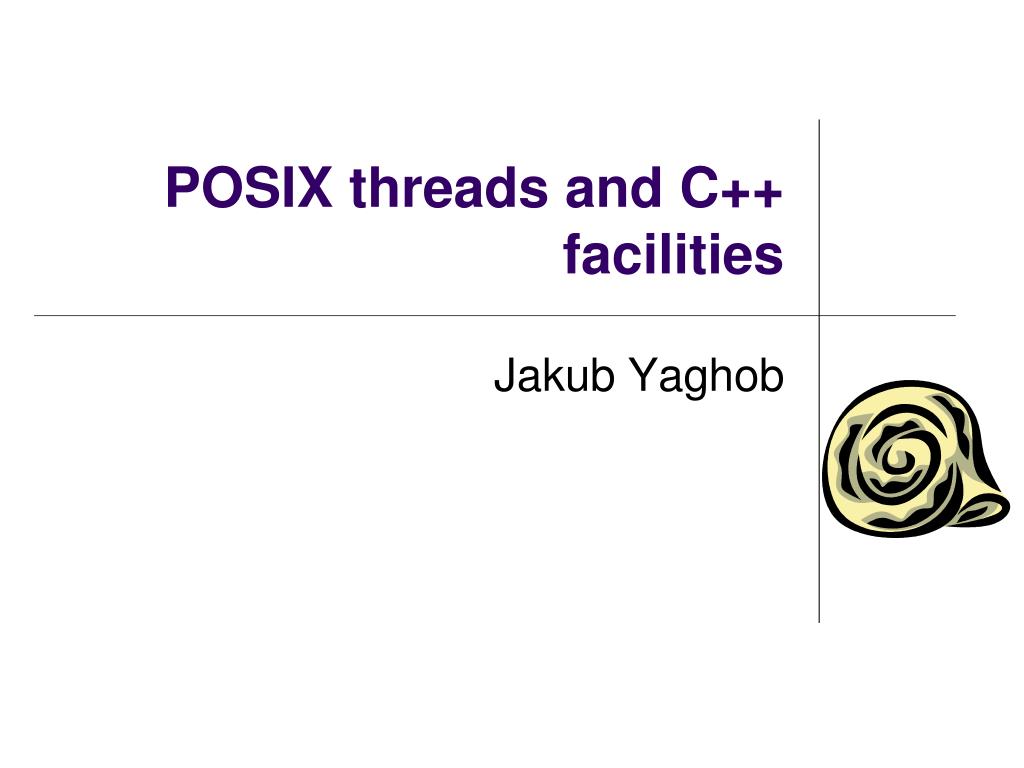
Ppt Posix Threads And C Facilities Powerpoint Presentation Free Download Id 3997046
It allows you to set a timeout after when the function automatically returns even if the lock was not acquired.

C unique_lock vs lock_guard. 3 try-locking initialization The object manages m and attempts to lock it without blocking by calling mtry_lock. 1 default constructor The object manages no mutex object. Unique_lock.
A timed mutex type satisfies the requirements for a mutex type. Value used as possible argument to the constructor of unique_lock or lock_guard. If the calling thread owns the previously associated mutex before this method calls unlock on the mutex it assigns the new values.
When creating a stdunique_lock there are three different locking strategies to choose from. If any of the calls to try_lock returns false then all locks acquired are released and the zero-based index of the failed lock is returned. This means unique_lock would need to have an extra flag indicating whether it owns the lock and another extra method owns_lock to.
Especially in case of exceptions the destructor of the guard object will ensure that the mutex is unlocked. Create it without an associated mutex. Create it without a locked associated mutex.
When a scoped_lock object is created it attempts to take ownership of the mutexes it is given. The first one is also the most useful. Stdtry_to_lock stddefer_lock and stdadopt_lock stdtry_to_lock allows for trying a.
Explicitly and repeatedly set or release the lock of the associated mutex. Stdunique_lock is mightier but more expansive than its small brother stdlock_guard. After the copy this method sets Other to a default-constructed state.
Stdshared_lock allows for shared ownership of mutexes. Instead of using a mutex directly you should always use a guard object for calling lock and unlock methods of the mutex. The object supports both states.
Several threads can hold stdshared_locks on a stdshared_mutex. The value is a compile-time constant that carries no state and is merely used to disambiguate between constructor signatures. Unique_lock provides a number of features few of which are especially applicable when simultaneously locking multiple mutexes.
The class scoped_lock is a mutex wrapper that provides a convenient RAII-style mechanism for owning one or more mutexes for the duration of a scoped block. When control leaves the scope in which the lock_guard object was created the lock_guard is. You have access to the same functions as a stdmutex.
The class lock_guard is a mutex wrapper that provides a convenient RAII-style mechanism for owning a mutex for the duration of a scoped block. The scoped_lock class is non-copyable. When a scoped_lock object is created it attempts to take ownership of the mutexes it is given.
Resource is the resource to lock and lock2 is the object. You either defer locking all. 2 locking initialization The object manages m and locks it blocking if necessary by calling mlock.
On construction the mutex object is locked by the calling thread and on destruction the mutex is unlocked. When control leaves the scope in which the scoped_lock object was created the scoped_lock is destructed and the mutexes are released. Calls try_lock on each of the Lockable objects supplied as arguments.
The key difference between both is a unique_lock instance doesnt need to always own the mutex it is associated with while in lock_guard it owns the mutex. If any of the try_lock operations on the supplied Lockable objects throws an exception any locks acquired by the function will be released before the function exits. A shared_lock can be used in conjunction with a unique lock to allow multiple readers and exclusive writers.
The object is completely immobile and its very simple. Learn C - stdshared_lock. Stdlock_guard is a lightweight alternative to stdunique_lock and stdshared_lock.
Never wait a thread if there is a chance that it is waiting for you. You can use mutex types as type arguments to instantiate the templates lock_guard and unique_lock. When a lock_guard object is created it attempts to take ownership of the mutex it is given.
The stdlock locks both mutexes. Other A unique_lock object. The constructor of the object lock1 locks the resource and when the object scope is over the object destructor unlocks the mutex.
Resource is the resouce to lock and lock1 is the object stdunique_lock lock2 resource. Lock and unlock but you have also two new functions. You can use objects of these types as the Lock argument to the wait member functions in the template condition_variable_any.
On construction or by move-assigning to it the object acquires a mutex object for whose locking and unlocking operations becomes responsible. Available from C 14. Dont lock a mutex if you already locked another mutex.
When control leaves the scope in which the scoped_lock object was created the scoped_lock is destructed and the mutexes are released in. It is the simplest lock and is specially useful as an object with automatic duration that lasts until the end of. A lock guard is an object that manages a mutex object by keeping it always locked.
Therefore we need to pass additional argument to the stdlock_guard constructor which tells that the mutex has already been locked and the lock_guard doesnt need to lock it again. Unique_lock objects constructed with adopt_lock do not lock the mutex object on construction assuming instead that it is already locked by the current thread. If several mutexes are given deadlock avoidance algorithm is used as if by stdlock.
A stdunique_lock enables you in addition to stdlock_guard. Deferring would have to be all or nothing. A unique lock is an object that manages a mutex object with unique ownership in both states.
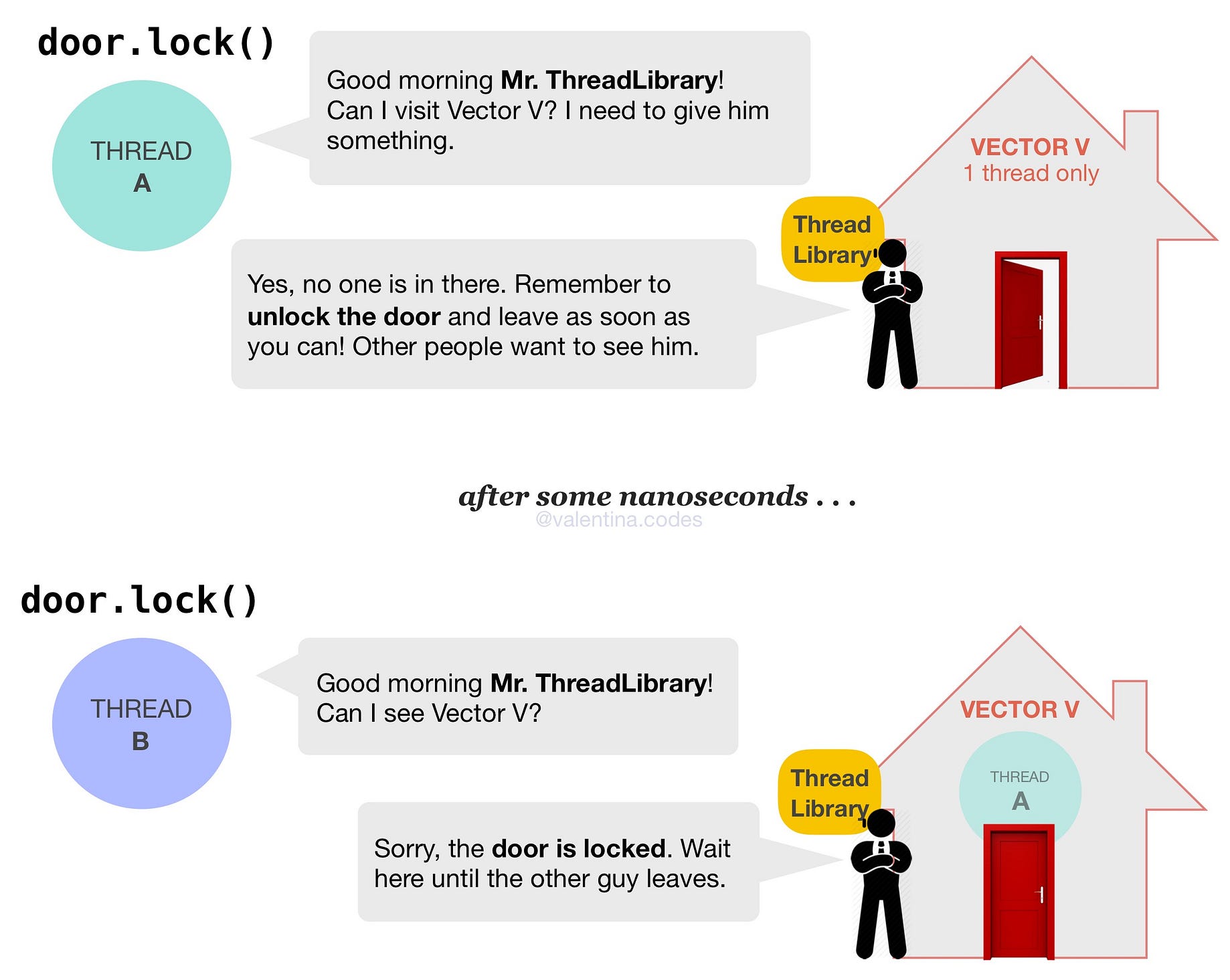
C Mutex Write Your First Concurrent Code By Valentina Di Vincenzo The Startup Medium

C Parallelization And Synchronization Jakub Yaghob Martin Kruli
Difference Between Std Lock Guard And Std Unique Lock

Programming Concurrency In C Part 2 Codeproject
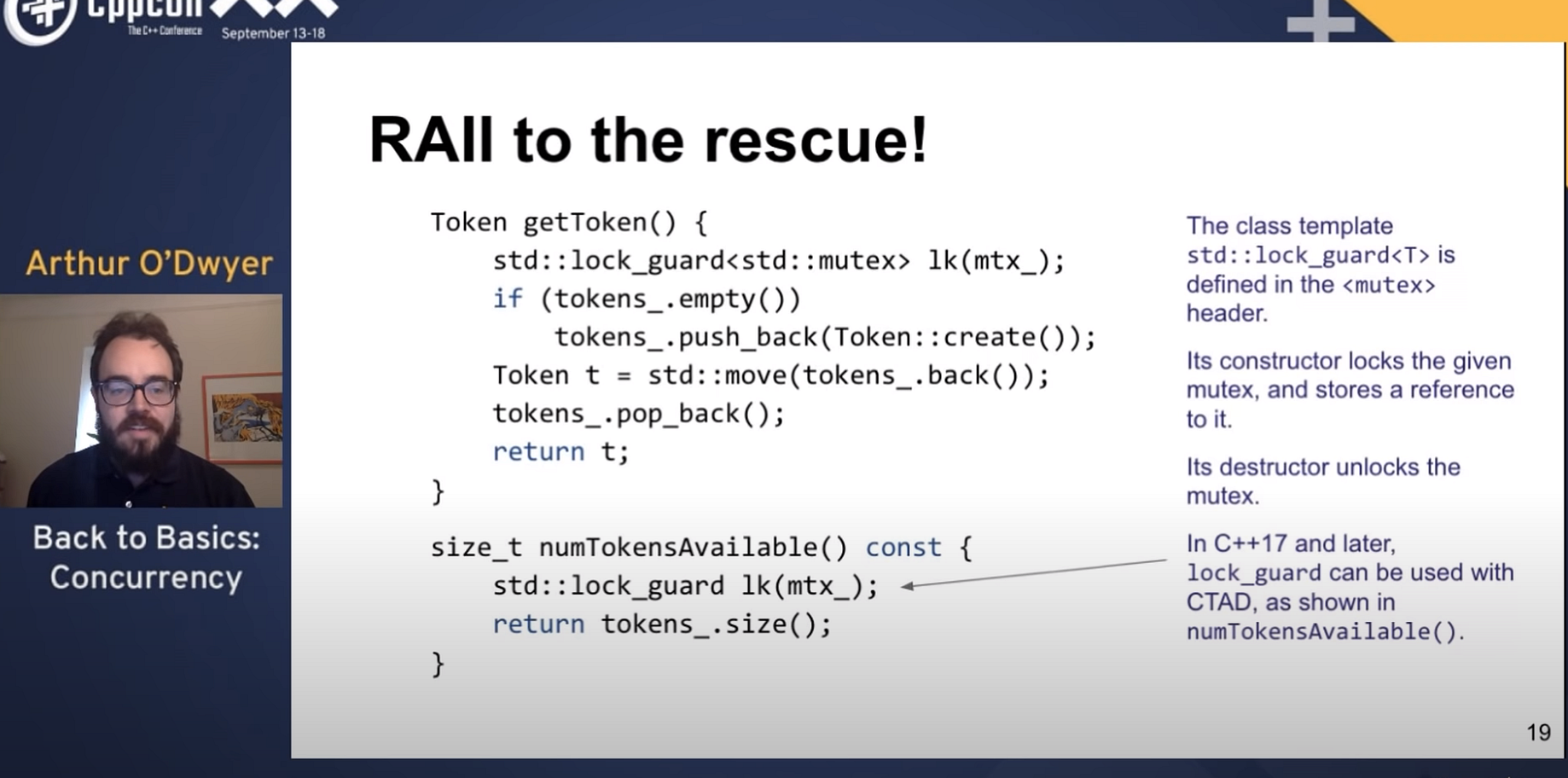
C Threading Performance Matters By Poby S Home Medium

Mutex Is Not A Member Of Std In Mingw 5 3 0 Stack Overflow
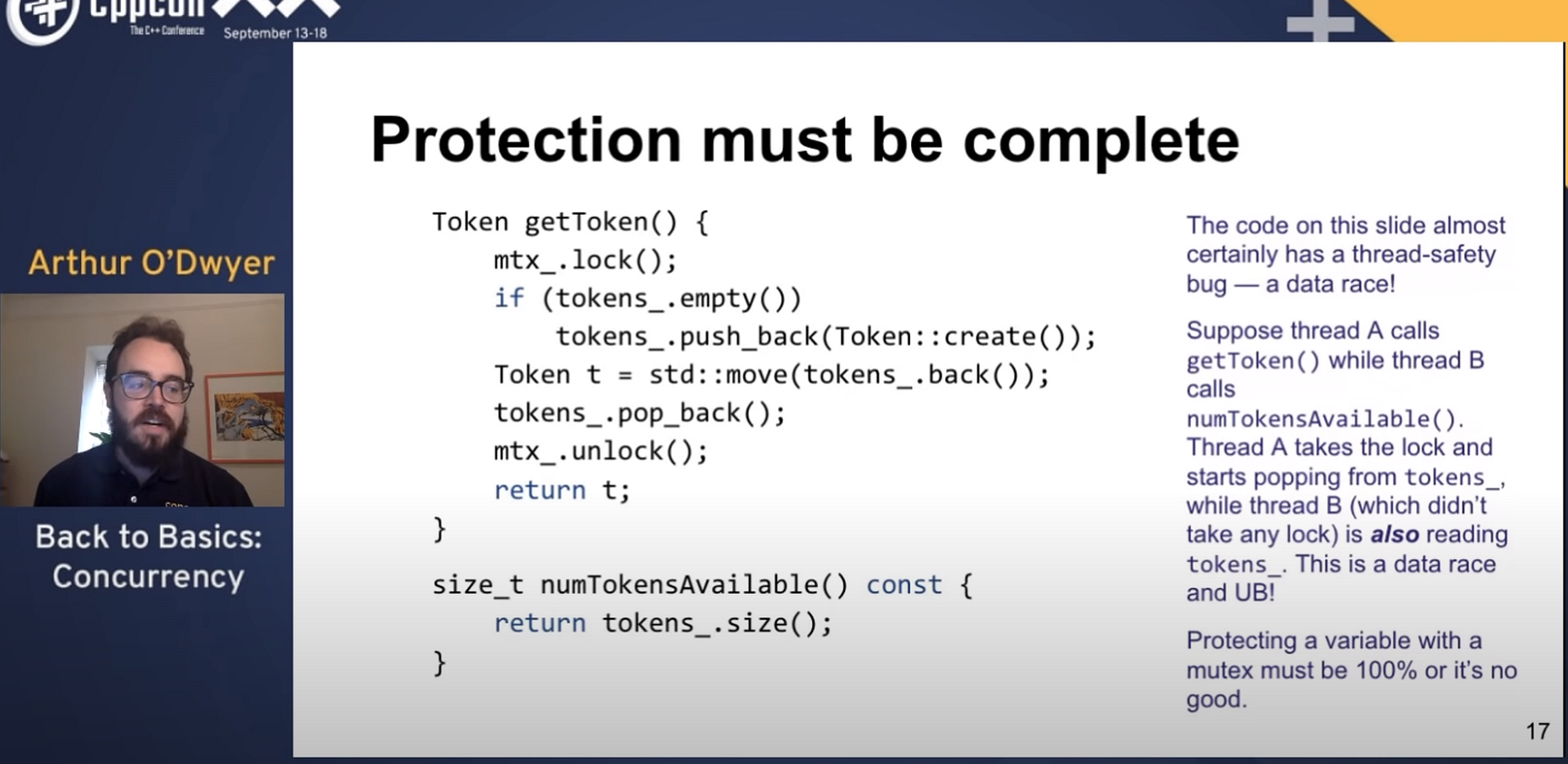
C Threading Performance Matters By Poby S Home Medium

Prefer Locks To Mutexes Modernescpp Com

C Move Std Unique Lock To Transfer Lock Ownership Nextptr

Multithreading Streaming Computer Games Engineering Co 4302 Overview

Multithreading Streaming Computer Games Engineering Co 4302 Overview
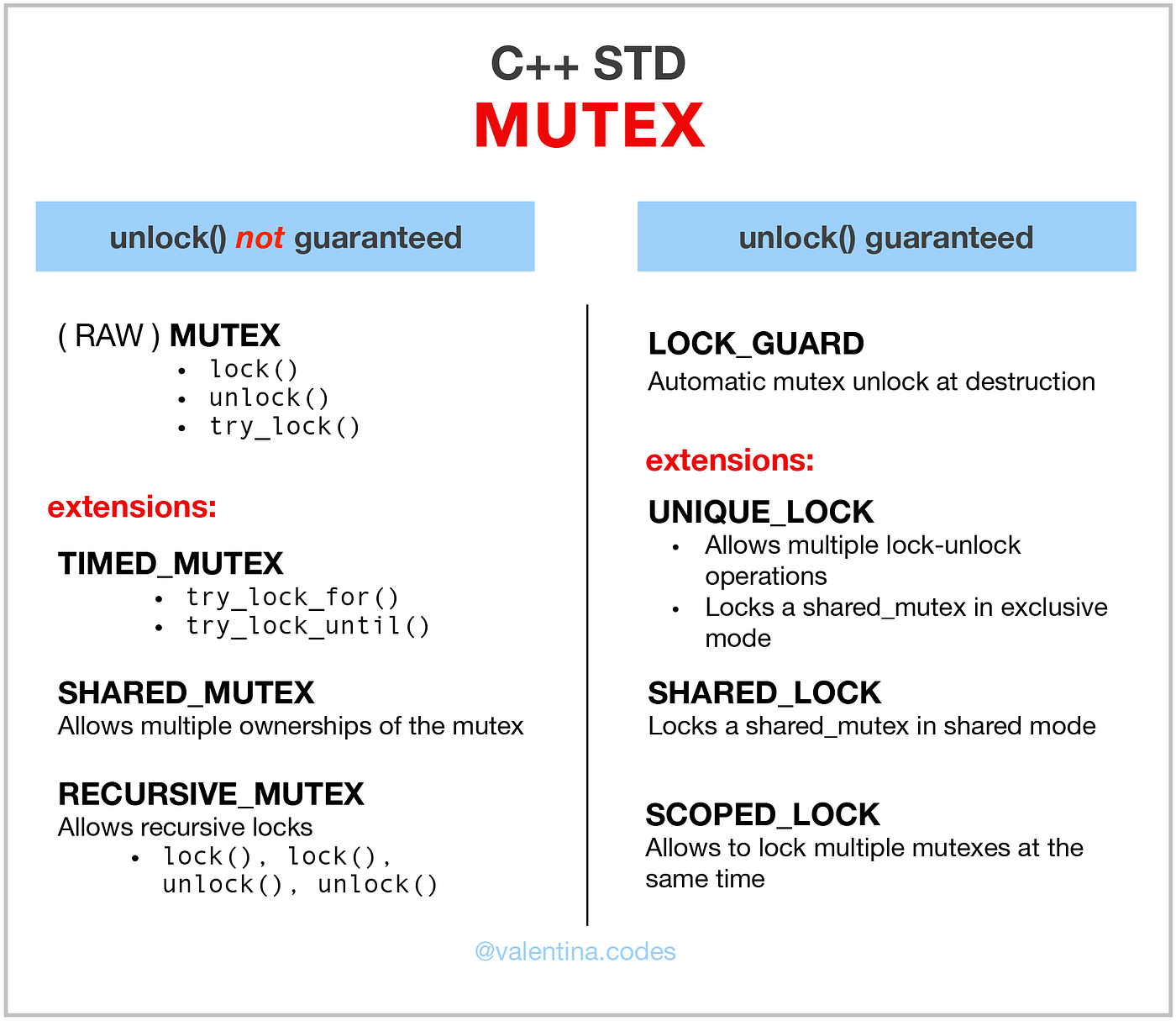
C Mutex Write Your First Concurrent Code By Valentina Di Vincenzo The Startup Medium

An Improved Thread With C 20 Modernescpp Com

Posting Komentar untuk "C Unique_lock Vs Lock_guard"